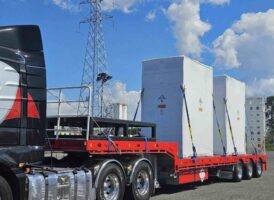New South Wales energy storage start-up, Gelion, whose non-flow zinc-bromide battery technology was spun out of the University of Sydney, is gearing up to become a publicly traded company – but not in Australia.
Gelion is preparing to launch an initial public offering (IPO) for the company on the London Stock Exchange’s AIM Market after completing a successful, oversubscribed £6 million ($A11m) pre-IPO raise.
Gelion’s goal is to raise £16 million ($A29.5m) to put towards the commercialisation its battery technology, to “tap into the huge growth” in energy storage as the world transitions to renewable energy.
But the first point of focus will be offshore, in Britain and Europe, where the company’s chairman Dr Steve Mahon says renewable energy is “surging forward” and the timing and politics is right for energy storage to thrive.
“The sharp rise in UK power prices has shown the pitfalls of being reliant on imported sources of non-renewable energy,” Mahon said in a statement.
“Gelion’s breakthrough technology can support the deployment of renewables and green hydrogen, which are central pillars of the pathways to net zero. This is truly disruptive technology at work.”
The company said it would also use some of the funds raised to develop its mobile energy division to enhance lithium-ion and lithium-sulfur battery technologies used in electric vehicles and the emerging market in electric aviation.
As RenewEconomy has reported, Gelion was spun out of of the University of Sydney in 2015 as an attempt to commercialise an innovative non-flow zinc-bromide battery technology, originally developed by USYD professor of chemistry Thomas Maschmeyer.
Gelion has positioned its batteries as a safe, high-temperature tolerant, lower-cost, robust alternative to lithium-ion batteries for stationary energy storage – and which can be manufactured in existing lead acid battery factories.
The company unveiled the first commercial application of its Gelion Endure battery storage platform – a battery-integrated portable, automated solar light tower – in early 2019, and then earlier this year announced a manufacturing partnership with local Sydney-based outfit, Battery Energy.
Gelion CEO Andrew Grimes said in a statement that the company was in “a tremendous place” to go to market as a publicly listed company, where it would gain easier access the dynamic capital and liquidity required to meet increasingly strong demand for energy storage.
“There is a great opportunity for us to leverage the supportive investment community on the AIM to take our battery technology to Asia, Europe and North America,” Grimes said.
“There are huge and growing markets in both stationary energy and mobile energy storage and Gelion is now well positioned to ensure we are the centre of the transition to renewable energy,” added Maschmeyer, who serves as principal technology advisor to Gelion.
“It is tremendously rewarding to see your inventions solve real-world problems and provide commercial solutions to address the climate crisis.”
Gelion says it has now notched up 400MWh in takeoff MoUs for its Endure product and its advisers have forecast that the company will be valued above £120 million on admission to AIM, which is expected to take place next month.
So far, funding rounds have attracted new and existing investors in the UK, Australia and Asia, with the total capital raised since the company’s foundation amounting to £17.6 million ($A32.4m).
Pre-IPO investors included Regal Funds Management, the Fund for Sustainability and Energy (Singapore) and the Elphinstone Group as well as reinvestment from the University of Sydney.










